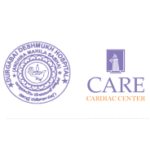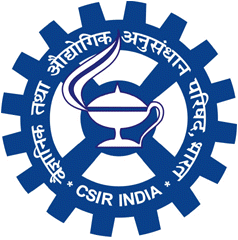Treatments Focus
Is Heart Attack Genetic? Indian Genetic Experts Answers

We often hear this question is heart attack genetic ? Or is a heart attack hereditary?
Or what are the genetic causes of the heart attack? There are no easy answers to
these questions, but heart diseases are the result of both genetic and environmental
factors. Genetic factors might make a person susceptible to heart conditions, but
environment and lifestyle choices often push the heart to the brink.
If a person has a family history of heart disease, then the chances of inheriting the
same are higher, but there are multiple reasons for aggravating the problem. From
lifestyle choices to dietary preferences to the environment, all play a significant role.
Is heart attack genetic? Genetic Professional Explains
Let’s address the most important question is heart attack genetic? Yes, in a few
cases, it is. If you have a long family history of heart attacks, your relatives, siblings,
parents, or any other close family member is diagnosed with a heart condition, then
there is no harm in getting a test done. But in no case, the presence of genetic
history means that one will get a heart attack. As mentioned above there are multiple
factors that play a role. And it can be managed by making healthy lifestyle choices.
Are family history and heart disease related?
If a family has a history of heart disease, especially if the members have
experienced heart problems, at a younger age i.e. 50 years or less, then the risks
are higher. Science has proven a correlation between heart disease and family
history.
But a family with a history of heart disease doesn’t mean that an individual will have
a heart attack. It means the right lifestyle choices should be made, smoking and
drinking should be strictly avoided, increased walking or physical exercises, and
regular checkups can help monitor the health condition. Exercise or physical activity
should be made as regular as brushing of teeth.
Blood pressure and cholesterol should be frequently monitored and the expert
recommendations should be strictly followed.
Can someone have a heart attack at a young age?
Generally, it is observed the risk of heart attack increases with age. But nowadays
we are seeing an increase in heart attack numbers even at younger ages.
Previously, rarely people in the age group of 35-40 years had heart attacks. Sadly,
this occurrence is becoming more frequent now. The key reasons cited behind this
are faulty lifestyle, stress, genetic predisposition, and at times previous medical
conditions.
Young adults under 45 are still in a safer zone, the risk increases in middle-aged
adults, that fall in the age group of 45-64. Leading a proactive life, keeping a check
on blood pressure and diabetes, and reducing weight, can lessen the risk. In the age
group of 65 and above, this risk increases considerably.
It’s important to note that these are general trends, and individuals may have unique
risk profiles based on their health status, genetics, and lifestyle choices. Additionally,
some medical conditions and risk factors that contribute to heart disease may be
present from a younger age.
Understanding Silent and Mild Attacks
Heart attacks, also known as myocardial infarctions, can manifest in various ways,
and the severity of symptoms can range from silent to mild to severe. We will discuss
both forms of heart attacks, in the case of a silent heart attack, there are very light or
no recognizable symptoms. Generally, a heart attack is associated with chest pain,
discomfort, fatigue, shortness of breath, and lightheadedness, all these symptoms
are missing in the case of a silent heart attack. These are more common in older
adults and people suffering from diabetes.
A mild heart attack typically refers to an event where the symptoms are present but
may be less intense than those of a severe heart attack. Common symptoms include
mild chest discomfort or pain, shortness of breath, fatigue, nausea, and
lightheadedness.
Any form of heart attack be it severe or mild, requires immediate medical attention, in
order to ascertain the kind of damage to heart muscles and to take corrective action.
Preventive Measures and Genetic test for heart
Whether it is a case of family history or wrong medical parameters, heart conditions
need to be taken seriously and on utmost priority. Get regular blood and cholesterol
tests done. Consult with a medical expert, and if needed take medications. And
importantly, change the lifestyle, reduce the usage of oil, spices, sugar, and
preservatives, get into a habit of regular exercise, reduce stress, and follow a
disciplined routine.
There are companies that are offering genetic tests for the heart, GenepoweRx
provides GenepoweRx Cardiac Care, this test examines an individual’s DNA for
specific variations associated with an increased risk for heart disease. This
information can then be used to develop personalized prevention and treatment
plans, including lifestyle changes and medications, that can help reduce the risk of
developing cardiovascular disease. By identifying potential genetic risk factors for
heart attack early, individuals can take proactive steps to maintain a healthy heart
and prevent heart disease from developing.
There are a lot of options present, it is important to do research and understand your options beforehand.
Related Articles
Book an Appointment to understand how GenepoweRx can help you in treating
Is Heart Attack Genetic? Indian Genetic Experts Answers
Meet The Doctors
Dr Kalyan Uppaluri
Dr Hima Challa
Your genetics … Your Test ... Your Health Success
It’s always the word of mouth that’s the best advice. Here are some of our…

Play Video

Play Video
Dr Hima takes utmost care of her patients and try to analyze the patient’s issues, gives a good amount of time to each patient in her consultation. I found her consultantions very helpful to my in-laws and myself. Dr Kalyan & Dr Hima both take personalized care of each patient. I say for any personalized issue regarding health, you can rely on them. Thank u so much for the care and support
In recent times we have had consulted GenepoweRx Personalized Medicine Clinic for my grandmother as she is diabetic. She was assigned to Dr.Kalyan Uppaluri who is considered the best diabetes doctor in Hyderabad, he looked over the reports of my granny and instructed the diet to be followed and suggested a customized medicine regime to be followed. At present, her sugar level is in normal condition.
Dr.Hima is the best allergist in Hyderabad. My sister has food allergies since her childhood. So, she used to skip some high protein foods. Then we consulted Dr.Hima. Then she listened to her problem and followed up with some medications. My sister used to have those medications on time and now she is free from allergy. Dr.Hima's treatment, indeed, worked very well . She is highly professional, and the hospital was so tidy. And the treatment charges are very reasonable. I would recommend her to everyone for whoever suffering from allergies.
Previous
Next
Our Partners






Professional Partnerships
Government Association

CSIR - Centre for Cellular & Molecular Biology
The Centre for Cellular and Molecular Biology (CCMB) under the Council of Scientific and Industrial Research (CSIR) is a premier research organization in frontier areas of modern biology, and promotes centralized national facilities for new and modern techniques in the interdisciplinary areas of biology and bioinformatics.
